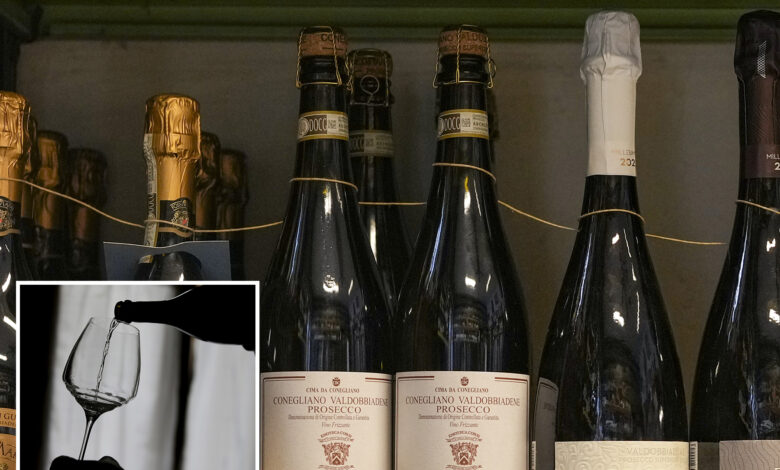US importers stockpile Italian Prosecco as a hedge against possible Trump tariffs

American importers have been stockpiling Italian bubbly Prosecco as a hedge against the possible impact of tariffs threatened by President Donald Trump, wine industry data show.
U.S. imports of Italian sparkling wine — 90% of that Prosecco — skyrocketed by 41% in November, after Trump’s election, far exceeding consumer demand as importers filled the pipeline for future sales, according to the Union of Italian Wines trade association.
“It was quite natural at the end of the year to do extra shipments,” said the trade association president, Lamberto Frescobaldi, given the uncertainty over whether tariffs would hit Italian wines or not — and the likelihood consumers would cut back on such luxuries if tariffs made them too pricey.
“Can we survive without a glass of wine? Yes. Wine is a pleasure,’’ Frescobaldi told The Associated Press this week.
Italian wines were not hit by tariffs during the first Trump presidency, and no tariffs have been announced to date against European partners. Still, Prosecco importers and distributors are taking precautionary measures to protect the market.
Italy exports nearly one-quarter of its wine to the United States, leaving the sector more heavily exposed to possible tariffs than any other Italian export, according to the trade federation.
Last year, Italy’s wine exports to the U.S. totaled 1.9 billion euros ($1.97 billion).
Prosecco became the top-selling Italian wine in the United States last year, representing nearly 40% of all sales.
The first signs of market concern showed up even before Trump was elected, with Prosecco shipments to the United States increasing 17% in the first 10 months of 2024.
That compares with more modest single-digit increases to the next two markets, Britain and Germany, and far outpacing U.S. consumption which rose just 0.6% in the period.
“It is an important figure that we did not expect,’’ said Giancarlo Guidolin, president of Prosecco DOC consortium, the largest of Italy’s three Prosecco-producing consortia. ”We think there was an increase of product in the warehouse.’’
One other factor in the higher deliveries may have been a threatened port strike in January, said Dina Opici, chairwoman of the Wine & Spirits Wholesalers of America.
“That said, obviously taking into consideration that there could be impending tariffs as well, I think it probably gave people a higher comfort level in making that investment,’’ Opici said.




